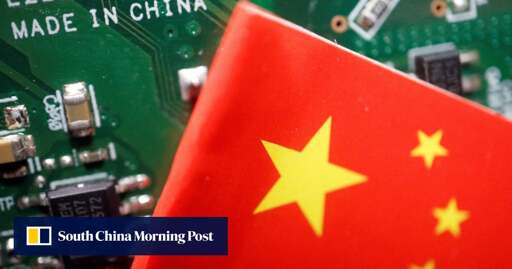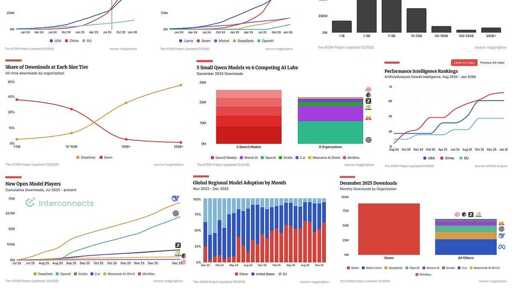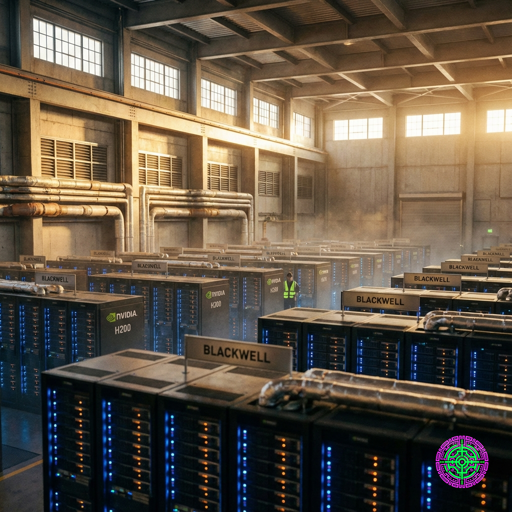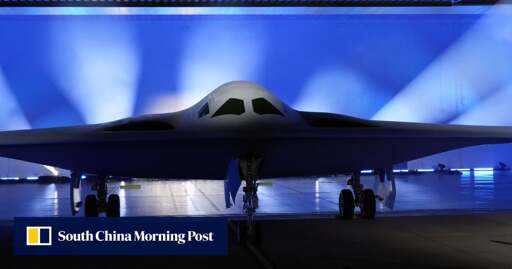☆ Yσɠƚԋσʂ ☆
- 2.65K Posts
- 4.24K Comments

 2·23 hours ago
2·23 hours agoYou might want to learn what words like reactionary actually mean before using them. We are discussing an open source tool, which by its nature lacks the built-in constraints you are describing. Your argument is a piece of sophistry designed to create the illusion of expertise on a subject you clearly do not understand. You are not engaging with the reality of the technology, but with a simplified caricature of it.

 2·2 days ago
2·2 days agoTechnology such as LLMs is just automation and that’s what the base is, how it is applied within a society is what’s dictated by the uperstructure. Open source LLMs such as DeepSeek are a productive force, and a rare instance where a advanced means of production is directly accessible for proletarian appropriation. It’s a classic base level conflict over the relations of production.

 3·2 days ago
3·2 days agoNah, I don’t think I’m going to take as gospel what a CIA asset say.

Instead, go read Marx to understand the relationship between the technology and the social relations that dictate its use within a society.

 161·2 days ago
161·2 days agostay mad

 5·2 days ago
5·2 days agoElections are just the surface of the problem. The real issue is who owns the factories and funds the research. In the West that’s largely done by private capital, putting it entirely outside the sphere of public debate. Even universities are heavily reliant on funding from companies now, which obviously influences what their programs focus on.

 2·3 days ago
2·3 days agonot that I know, but would be neat to see that

 51·3 days ago
51·3 days agoor maybe it’s the capitalist relations and not the technology that’s the actual problem here
behold the least brainwashed wasp everybody
this evidence ignoramus
90% of families in the country own their home giving China one of the highest home ownership rates in the world. What’s more is that 80% of these homes are owned outright, without mortgages or any other leans. https://www.forbes.com/sites/wadeshepard/2016/03/30/how-people-in-china-afford-their-outrageously-expensive-homes
Chinese household savings hit another record high in 2024 https://www.wsj.com/livecoverage/stock-market-today-dow-jones-bank-earnings-01-12-2024/card/chinese-household-savings-hit-another-record-high-xqyky00IsIe357rtJb4j
Social mobility in China being far better than in the US https://www.nytimes.com/interactive/2018/11/18/world/asia/china-social-mobility.html
The typical Chinese adult is now richer than the typical European adult https://www.businessinsider.com/typical-chinese-adult-now-richer-than-europeans-wealth-report-finds-2022-9
The real (inflation-adjusted) incomes of the poorest half of the Chinese population increased by more than four hundred percent from 1978 to 2015, while real incomes of the poorest half of the US population actually declined during the same time period. https://www.nber.org/system/files/working_papers/w23119/w23119.pdf
From 2010 to 2019 (the most recent period for which uninterrupted data is available), the income of the poorest 20% in China increased even as a share of total income. https://data.worldbank.org/indicator/SI.DST.FRST.20?end=2019&%3Blocations=CN&%3Bstart=2008
Real wage (i.e. the wage adjusted for the prices you pay) has gone up 4x in the past 25 years, more than any other country. This is staggering considering it’s the most populous country on the planet. https://www.youtube.com/watch?v=Cw8SvK0E5dI
Meanwhile, billionaires are fleeing China https://www.firstpost.com/explainers/china-billionaires-declining-rich-list-13830670.html
oh no the lib bible disagrees in face of all evidence, must be true 🤣
this one’s pretty short at least :)
Oh no, the state in China prevents rich assholes from buying up and hoarding property, how terrible!

 20·4 days ago
20·4 days agoa couple more


Incidentally, I can’t recommend this book enough, it lays out how this whole mindset was cultivated since the end of WW2.
I suspect there’s also an aspect of chauvinism here at play. If people already have a predisposition to see themselves as superior, then these kinds of stories feed into what they already want to believe.
Right, I think the key difference is that we have a feedback loop and we’re able to adjust our internal model dynamically based on it. I expect that embodiment and robotics will be the path towards general intelligence. Once you stick the model in a body and it has to deal with the environment, and learn through experience, then it will start creating a representation of the world based on that.
Aww y’all still mad your color revolution failed?

 2·5 days ago
2·5 days agoIt seemed pretty clear to me. If you have any clue on the subject then you presumably know about the interconnect bottleneck in traditional large models. The data moving between layers often consumes more energy and time than the actual compute operations, and the surface area for data communication explodes as models grow to billions parameters. The mHC paper introduces a new way to link neural pathways by constraining hyper-connections to a low-dimensional manifold.
In a standard transformer architecture, every neuron in layer N potentially connects to every neuron in layer N+1. This is mathematically exhaustive making it computationally inefficient. Manifold constrained connections operate on the premise that most of this high-dimensional space is noise. DeepSeek basically found a way to significantly reduce networking bandwidth for a model by using manifolds to route communication.
Not really sure what you think the made up nonsense is. 🤷














here https://archive.ph/ycGN8